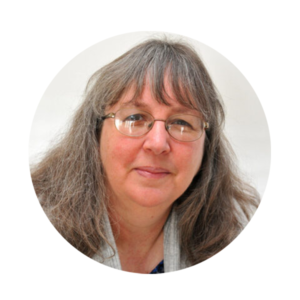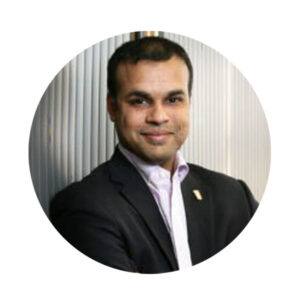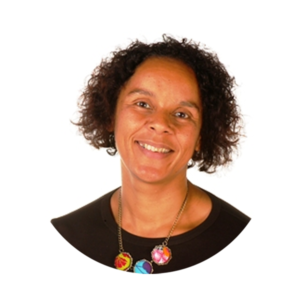BOOKINGS CLOSED.
This event hosted by the ACAMH Southern Branch brings together three of the most interesting and engaging speakers on the topic of Developmental Trauma and Neurodevelopmental Disorders. We are delighted to be working with Dr. Kim Golding CBE, Dr. Raja Mukherjee, and Professor Helen Minnis. This is a great opportunity and one that you do not want to miss.
Quick links about the event
About the event
Key takeaways
Who should attend
Programme
About the speakers
About the event
Children who have experienced significant early life trauma presenting with behavioural disturbances elicit different responses from the professionals. Some choose to explain the behaviours using the conceptual framework of developmental trauma whilst others use the framework of neurodevelopmental disorders.
This half day online conference looks at the latest research and evidence behind the different conceptual frameworks on Developmental Trauma and Neurodevelopmental Disorders.
It will address key questions such as; are different frameworks opposed to each other?; is there a unifying theory?; how do you integrate theory and practice in the best interests of the children and adolescents who have experienced significant trauma?
The conference will be staged over Zoom as a webinar format, with a series of lectures and presentations, and a panel discussion at the end.
Key takeaways
- Gain an understanding of the importance of early life influences on child’s development and the long-term impact on their mental health.
- Learn how Dyadic Development Psychotherapy (DDP) can help support children with developmental trauma and with neurodevelopmental differences.
- Gain insights into how Fetal Alcohol Syndrome Disorder (FASD) impacts Developmental Trauma and Neurodevelopmental Disorders.
- Discover the latest research on this topic, and effective interventions.
Who should attend
This day would be particularly beneficial to all those who work with children affected with mental health issues. It will be of particular interest to Clinicians, those working in education, such as Educational Psychologists, and those with a pastoral care responsibility, plus those who oversee youth work such as Social Workers.
Additionally, it is also relevant to those conducting research in the field of child and adolescent mental health, Child and Adolescent Psychiatrists and Psychologists, Speciality Doctors, Clinical leads, Nurse Practitioners, Researchers, Investigators, and those with an interest in child and adolescent mental health.
Programme
9:00 – 9:10 Registration
9:10 – 9:15 Welcome by the chair
9:15 – 10:05 Dr. Kim Golding – Supporting children with developmental trauma and with neurodevelopmental differences. How can DDP help?
10:05 –10:55 Dr. Raja Mukherjee – Developmental Trauma and Neurodevelopmental Disorders – Learning from FASD
10:55 – 11:05 Break
11:05 – 11:55 Prof. Helen Minnis – Which came first, the chicken or the egg?
11:55 – 12:30 Panel Discussion – Developmental Trauma and Neurodevelopmental disorders – integrating theory and practice; a clinician’s dilemma
12:30 – 12:40 Final comments and close
About the speakers

Kim S. Golding CBE, BSc, MSc, D. Clin. Psy. AFBPsS is a clinical psychologist who works in Worcestershire, England where she was influential in the founding of the Integrated Service for Looked After Children – a multi-agency, holistic service providing support for foster, adoptive and residential parents, schools and the range of professionals supporting children growing up in care or in adoptive families. Kim was trained and mentored by Dan Hughes in the use of Dyadic Developmental Psychotherapy (DDP). She is on the board of the Dyadic Developmental Psychotherapy Institute supporting the use of DDP in Europe, USA and Canada. She accredits and trains professionals in the approach in the UK and has been invited to speak about this work internationally.
Listen to our podcast with Kim on Dyadic Developmental Psychotherapy.

Dr. Raja Mukherjee is a Adult Learning Disability Consultant Psychiatrist for Surrey and Border’s Partnership NHS Foundation Trust, with interest in the management of developmental disorders across the lifespan. In September 2009 he started the first NHS based specialist Foetal Alcohol Spectrum Disorders behavioural clinic and since then has seen over 250 cases for specialist second opinion as a National referral service. Dr. Mukherjee completed his PhD on the subject of Foetal Alcohol Syndrome in 2014.
He has also acted as an invited advisor to the BMA board of science, The Department of Health and the World Health Organisation on the subject of FASD. In 2015 Dr. Mukherjee also gave evidence to the first All Party Parliamentary Group on FASD at the House of commons. He has continued to support national clinical developments related to FASD. Dr. Mukherjee is a member of the NICE quality standards group for FASD. He is currently the only UK representative to a US, NIH sponsored initiative to consider the research criteria for FASD. In his own time, he volunteers as a medical advisor to various FASD charities both in the UK and internationally.
In wider work, he is currently Clinical Lead for Adult neurodevelopmental services provided by Surrey and Borders including Adult ASD and ADHD services across Surrey, Hampshire and Portsmouth. He is an executive committee member of the RCPsych SIG on neurodevelopmental disorders, taking over as Finance officer from July 2021.
Read Raja’s blog on ‘A reflection on 15 years working with Fetal Alcohol Spectrum Disorders (FASD) in the UK’.

Helen Minnis is Professor of Child and Adolescent Psychiatry at the University of Glasgow. She has had a longstanding clinical and research focus on the psychiatric problems of abused and neglected children. Currently her focus is on intervention research, including a randomised controlled trial of an infant mental health service for young children in foster care and a randomised controlled trial of Dyadic Developmental Psychotherapy for primary school-aged children in adoptive or foster placements. She is also conducting behavioural genetic research focussed on the role of abuse and neglect and its overlap with neurodevelopment across the life-course. She has collaborations with colleagues at the Institute of Psychiatry, Psychology and Neuroscience at King’s College London, the Universities of Aalborg and Aarhus, Denmark and with the Gillberg Neuropsychiatry Centre, Gothenburg, Sweden.
Take a look at Helen’s recent lecture on ‘Teacher parent co-production to develop new educational models for the pandemic – and beyond’.


